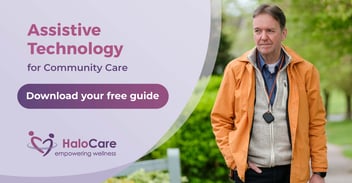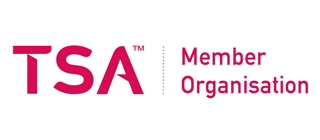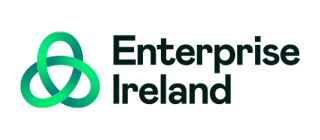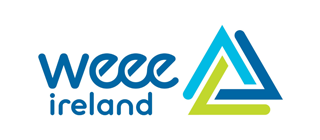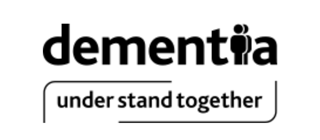
Advances in technology mean that there are more tools than ever available to make caring for a loved one easier, while delivering the best quality care possible.
With 72% of informal carers in Ireland reporting that they have never received respite, it’s vital that carers put steps in place to ensure they don’t burn out and are set up for success when it comes to providing at-home care.
Here are our top five tips to make caring for your loved one a more enjoyable experience for everyone involved.
1. Adopt Smart Devices for safety
Invest in Smart Devices like motion sensors, long-lie detectors or appliance management systems. Smart Devices can add peace of mind, allowing your loved one to move around the house safely, all while maintaining the independence of the individual.
The HaloCare solution has key features for keeping loved ones safe at home, including:
- Appliance management. Sensors can be added to various appliances in the home such as the oven, fridges or kettles to detect if appliances have been used or left on.
- Temperature management. HaloCare can detect changes in the temperature in the home as well as flood detection, vital for quick intervention.
- Panic buttons. Emergency panic buttons can be located anywhere throughout the home, including areas where falls are most frequent, such as the bedroom or bathroom. Once activated by pressing, the Care Hub team will be alerted and will intervene.
- Wearable fall detection. HaloCare fall detection devices with an S.O.S button also come in the form of watches and pendants for those who prefer a physical device to hand.
The HaloCare solution covers both environmental and personal safety to ensure living independently is a safe option for your loved one.
2. Stay connected using technology
For caregivers who live at a distance, work full-time or have other responsibilities, regular virtual check-ins can be invaluable.
HaloCare’s HaloPad provides one central location where clients can easily share photos, make video and phone calls. The HaloPad has been specifically developed with a user-friendly interface, so even those who don’t feel confident using technology will feel confident and enjoy using the HaloCare platform. This means no matter what part of the world you’re in, you’ll have the ability to stay connected to your loved one.
HaloCare also offers clients the option to opt-in for a daily ‘comfort call’ from the Care Hub team. The Care Hub team will ring the client at a time that suits them, for an informal chat, allowing the client to enjoy speaking to a familiar voice each day. Having the option to opt-in for a comfort call helps to keep clients connected, while ensuring the client gets to choose when they socialise. Our client’s Circle of Care often take great comfort in the fact that their loved ones will have a regular point of contact to keep them company at home.
3. Incorporate Vital Sign Monitoring for real-time insights
Vital Sign Monitoring can be used to measure blood pressure, pulse, heart rate and monitor oxygen levels. This information can then be used to support clinicians to make informed decisions about treatment and care. This means vital information can be captured from the comfort of home.
Vital Sign Monitoring means information can be collected in real time, so you can stay up to date on your loved one's health with the most accurate information.
HaloCare’s Virtual Monitoring Solution allows for vitals such as body temperature, blood pressure and oxygen saturation levels to all be recorded using our Smart Devices. At the initial installation stage, our trained technicians will talk the client through using all the devices, putting the client back in control of their health.
4. Look into memory care support
Memory Care is a specialised form of care that supports people living with dementia or any other ailment that may cause memory loss. Memory loss is a progressive disorder, which means that a long-term solution towards memory care will be required.
Caring for a loved one with a memory condition can be challenging, and often the Circle of Care may have concerns about their loved one's ability to live independently. HaloCare can support with the following;
- Medication management
- Nutrition and Hydration Prompts
- Wandering detection, i.e. sensors that can detect when doors have been left open or opened at unusual times in the night.
Having a solution in place like HaloCare provides a long-term solution to at-home care.
5. Keep Emergency Contacts and Information Accessible
Make sure all emergency contacts, medical information, and care instructions are easily accessible. There are apps specifically designed for storing this critical information, ensuring that it can be quickly retrieved in an emergency.
The HaloCare HaloPad can be used to store vital information, ensuring the individual has everything they need in one safe, secure place.
You can also have peace of mind that with HaloCare, your loved one will have 24/7 access to the Care Hub team. This means that should an emergency happen; your loved one will be able to easily access the Care Hub support team, who can then intervene and escalate further as required.
Conclusion
Incorporating these tips into your loved one's home and daily routine means you can enhance the safety, comfort, and independence of your loved one while making your caregiving role more manageable.
Preventing burnout as a carer is extremely important, home-care solutions like HaloCare have the ability to fit neatly into your loved one's care plan.
The HaloCare solution has been designed to support clients with their activities of daily living for a more independent way of life at home.
Find out more about HaloCare and our services today.



